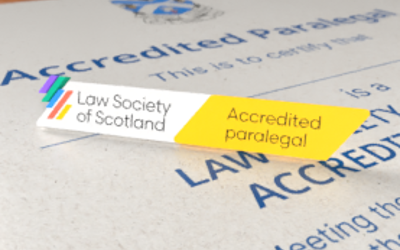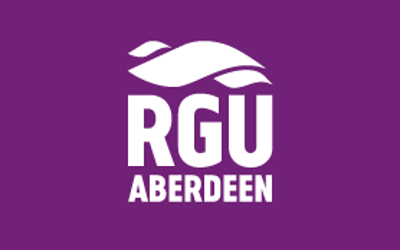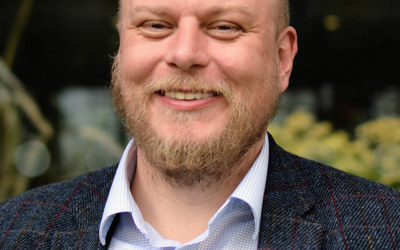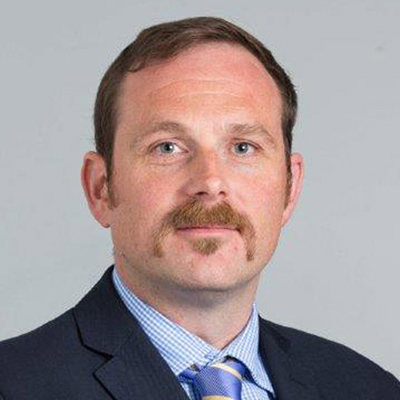Setting the foundation: How we created a university course for paralegals
In the first of three blog posts, Head of Commercial Services at the Law Society, Jim Mckay, shares how we went from an idea – a university course for paralegals – to working with Robert Gordon University to bring the concept to life.
First, a confession. I did not know what I was agreeing to when I committed to writing the first part of a three part series on the newly launched Paralegal Practice Cert HE course. My memories of 2020 are, like most people, probably a little hazy. After all, it is four years and a global pandemic ago. Secondly, I have never written a blog before and after two days of working at it, well, lets just say, I don’t think I missed a calling as a writer.
Good advice is to start at the beginning. What was the beginning point for the Paralegal Course now being offered in conjunction with Robert Gordon University?
The record will show that we started working on the process properly in June 2020. But the conversations around this predate that, and probably my time here too.
So why?
Strategically, we have a number of commitments to members and the profession. Firstly, we want to support our members to thrive. Everyone needs good people around us at work to achieve anything, and no-one does it alone. This course supports that goal and acknowledges that premise.
The course is for paralegals working in Scottish law firms. The Society serves the aims and interests of the Scottish legal profession, so we wanted to ensure that a course for paralegals focused on areas of Scots law, such as conveyancing, which are distinct to our jurisdiction. As David Christie says, ‘in legal firms, paralegals are the people who get things done’.
Secondly, prevention is always better than cure, so from a regulatory perspective anything that helps lift standards in the core delivery of legal services is self-evidently a good thing . This course helps support that goal.
Thirdly, the course is designed specifically for people working remotely. There is no requirement to be in Aberdeen on a cold, wet Tuesday morning (sorry Aberdeen but you have your share of those). The course is held completely online and modernising our approach makes the course more accessible. That too supports our strategic goals.
Lastly, in doing this we are also trying to demonstrate to the legal profession as a whole our commitment to ‘leading legal excellence’.
The Society now offers a vast range of training programmes catering to the needs of all parts of the profession. Some, like this course, come with formal qualifications that will help open doors for the course participant and also provide the public with increased confidence in their expertise.
Why now?
Essentially, the pandemic turbo charged this, like so many other things. We can all agree that we would wish it had not taken a global pandemic to shift people towards using online training, but there is no doubt that the shift towards online learning started as a consequence of covid. At the Society we now have more members joining our courses because we host CPD online.
By March 2021, we had opened a tender process, reviewed several submissions from universities, and convened a panel to score and discuss the subsequent submissions.
In the end, Robert Gordon University (RGU) impressed everyone with their written submission.
So what next?
To kick things off, we held exploratory meetings with David Christe, Margaret Downie and John Clifford from RGU Law School.
Unsurprisingly to anyone, creating a course doesn’t happen overnight, so the first point of call was to collectively identify the modules and areas of law we wanted to focus on so RGU could proceed to scope these out further.
We, of course, couldn’t create a course for paralegals, without hearing directly from paralegals themselves. We relied heavily on the insights and expertise offered by Karen Leslie, Sandra Reid, and Sharon Connolly to shape the course content. Karen, Sandra, and Sharon are each accredited paralegals and at the top of their profession. From the regular discussion groups we held around module reviews and course content design, we formulated the modular approach now open. The mix of black letter law (foundation of Scots law, commercial and residential conveyancing, wills and trusts, family law, debt recovery) with ethics and paralegal practice & skills are designed to ensure that course participants get a truly holistic programme which is relevant to the totality of the job, and not just abstract legal rules.
This was the most substantive and important piece of the jigsaw, and thanks to David, Sharon, Karen and Sandra a truly comprehensive course has been put together which provides successful applicants with a university standard qualification that has demonstrably transferable application to the real world of work.
I could write not just a blog but probably a book on the various governance structures involved at both ends while we navigated contracts. A membership body partnering with a University is quite the governance marriage. These checks and balances proved their worth, not least when the course was assessed and critiqued by a panel of external advisors from academia and legal practice.
Looking back on this now, it was an exciting project to be involved in from concept to completion. The people we helped bring together were inspiring. The commitment and belief they each showed was energising and humbling. It helped bring home to me how many exceptional people are working in the legal profession who are working in non-solicitor roles. Some estimates suggest that for every one solicitor working in the legal profession there are three people working in non-solicitor roles. For a truly flourishing legal system, we are as dependent on the quality of our law schools, paralegals and others as we are on the solicitor profession. In that sense, this course is for paralegals and the profession, and the people it serves.
Now that we have had the first cohort start the course and can look ahead positively to the next cohort in early 2025, I will pass over to the person whose energy and work has become the driving force in this, David Christie.
Join 2025’s Paralegal Practice cohort by submitting your application here.

Accredited Paralegals
Our Accredited Paralegal status is a voluntary accreditation for paralegals working in Scotland.

Paralegal Practice Cert HE
Find out more about our Paralegal Practice Course with Robert Gordon University.


